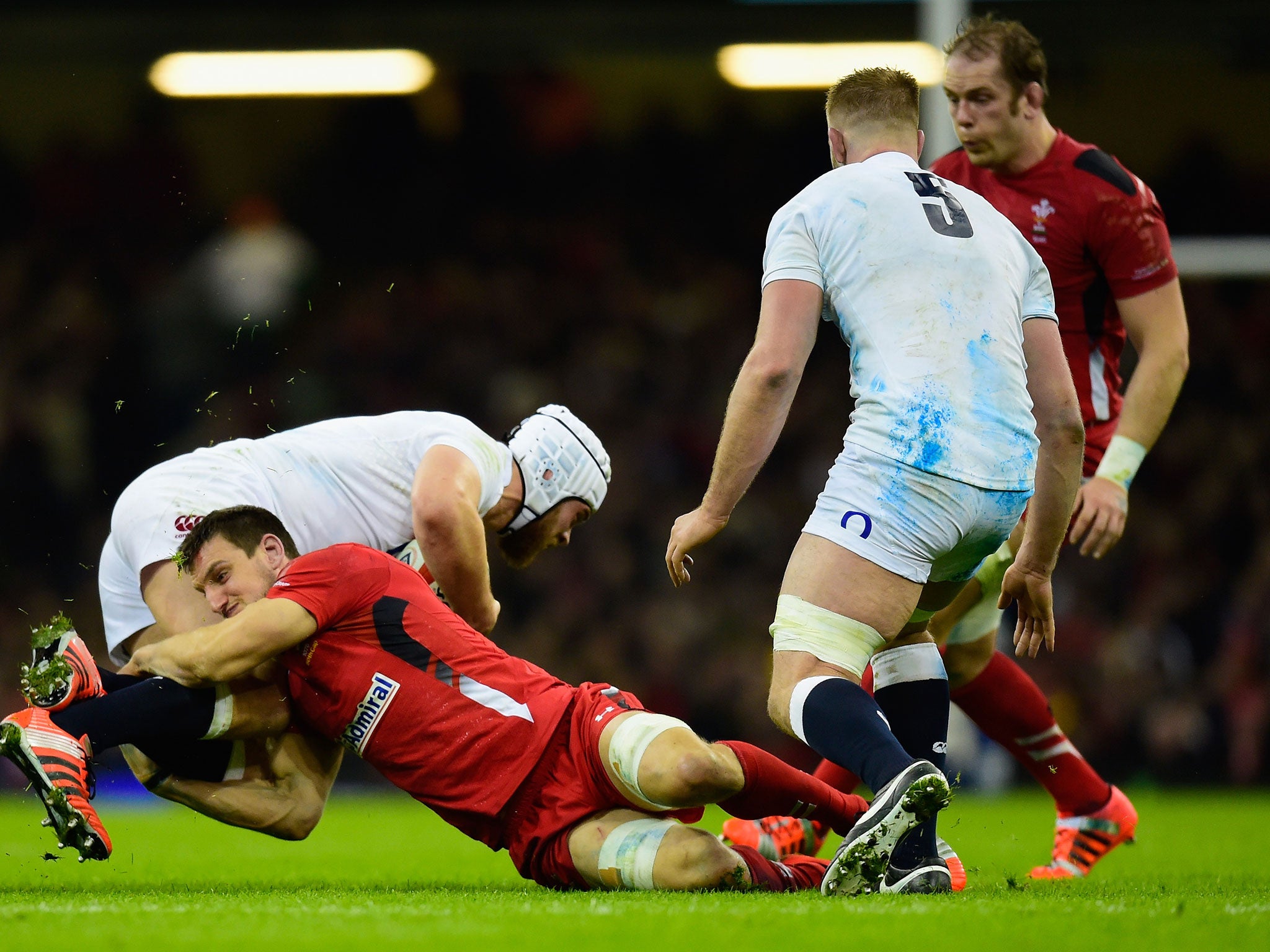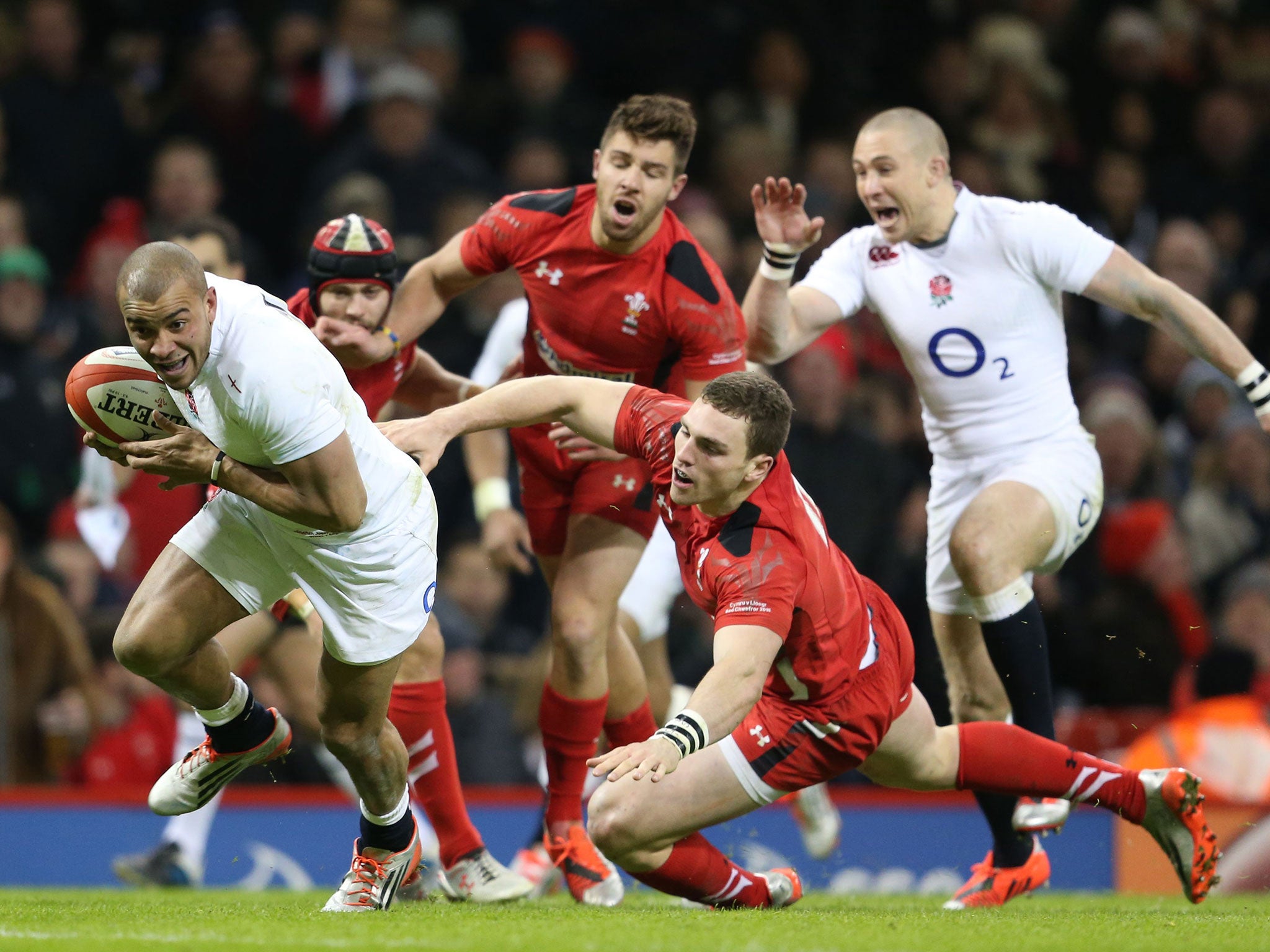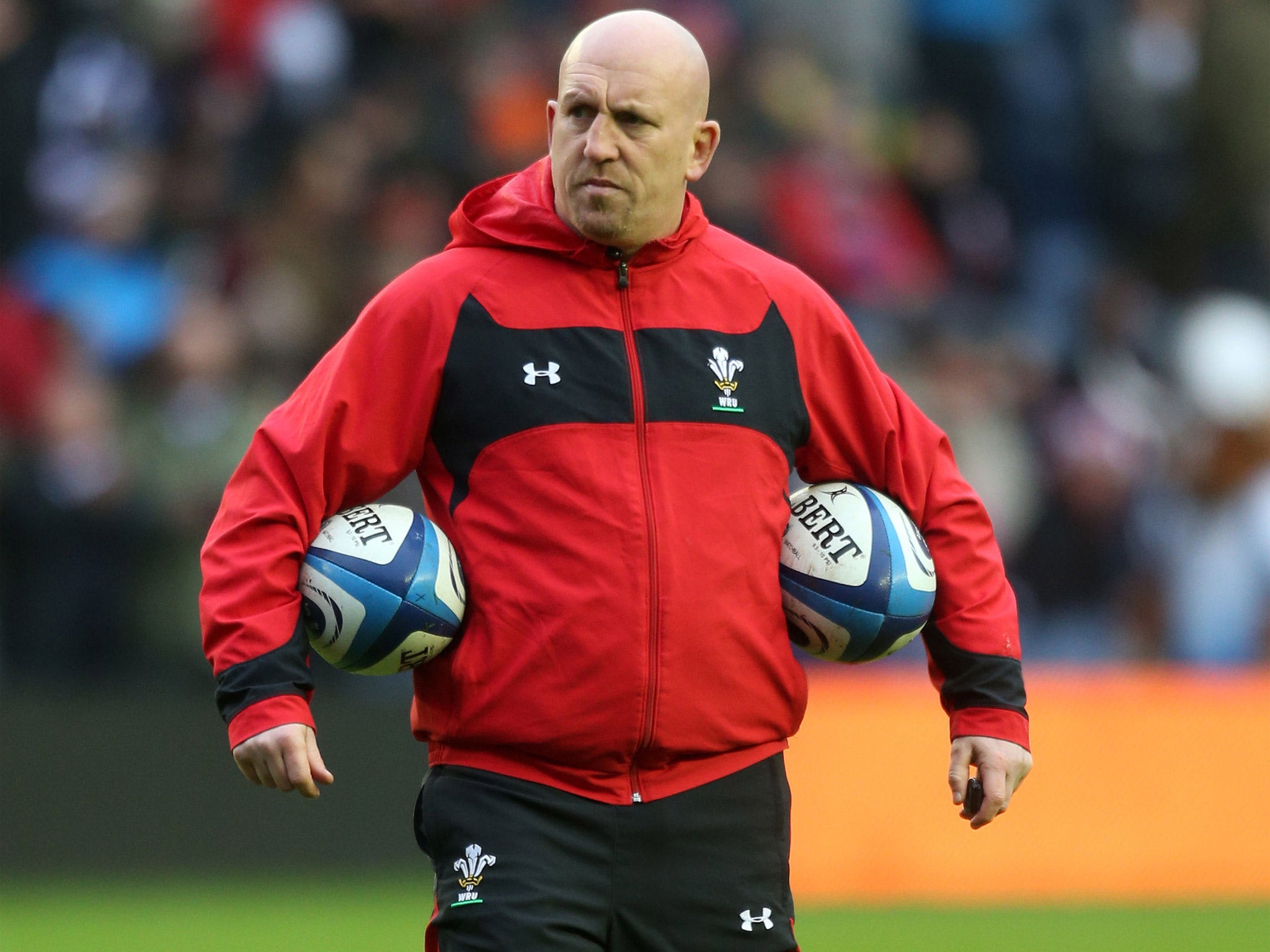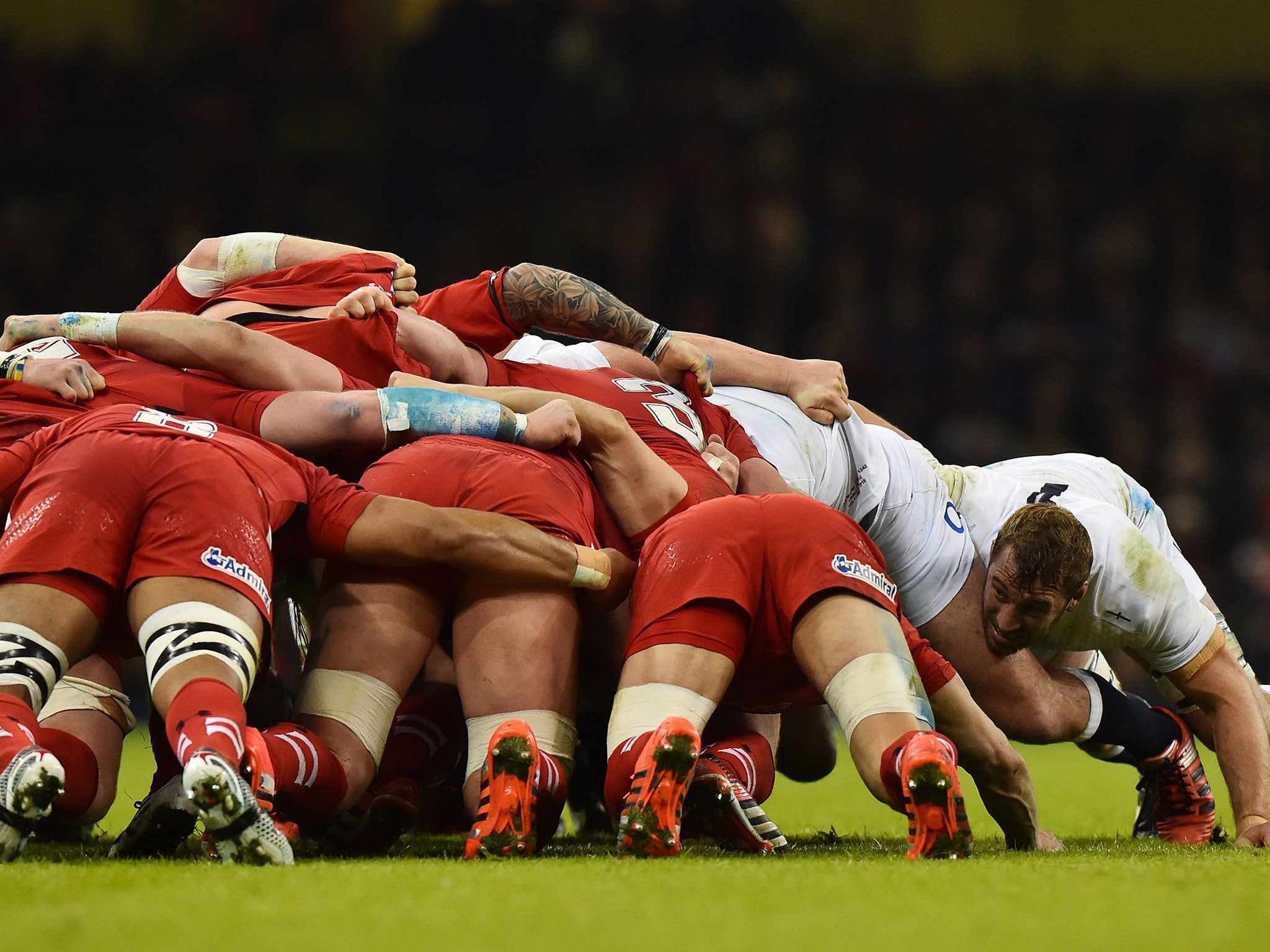Wales vs England: Five things we learnt from the Six Nations opener
Cut Wales off at the source, England can play with pace, the Welsh can be broken, scrummaging remains a problem across the Severn and England gain their composure

Your support helps us to tell the story
From reproductive rights to climate change to Big Tech, The Independent is on the ground when the story is developing. Whether it's investigating the financials of Elon Musk's pro-Trump PAC or producing our latest documentary, 'The A Word', which shines a light on the American women fighting for reproductive rights, we know how important it is to parse out the facts from the messaging.
At such a critical moment in US history, we need reporters on the ground. Your donation allows us to keep sending journalists to speak to both sides of the story.
The Independent is trusted by Americans across the entire political spectrum. And unlike many other quality news outlets, we choose not to lock Americans out of our reporting and analysis with paywalls. We believe quality journalism should be available to everyone, paid for by those who can afford it.
Your support makes all the difference.England recovered from a 10-point deficit to secure a monumental victory over Wales at the Millennium Stadium.
Stuart Lancaster's side claimed revenge for the 30-3 thumping they received in their last visit to Cardiff with an emphatic second-half display. The visitors scored 13-unanswered points in the second half to secure a deserved victory.
But apart from realising that DJ Spoony and erratic light shows are an unnecessary addition to this already enthralling fixture, what did we learn from last night's game?
You have to cut Wales off at the source
In the first half, Wales won the battle at the breakdown. Sam Warburton was always first on the scene and his pack were never far behind, they fought fiercely for everything on the floor and won eight turnovers in the process as well as the two penalties that Leigh Halfpenny converted.
When they were in possession, they gave Rhys Webb plenty of front-foot ball and he distributed with pace and precision, which allowed his Ospreys teammate Dan Biggar to set the bullish Welsh backline in motion.
But after the interval, the English forwards assumed control. They harassed Wales at the breakdown and disrupted their attempts to generate quick, clean ball.
Webb was left to shovel the scraps and Wales were stuck on the back foot because 'Warrenball' does not work without quick ball.
England can play with pace, not just power
England's injury crisis appears to have been a blessing in disguise. If Brad Barritt and Manu Tuilagi were fit, at least one of them would have found their way into the starting line up. But both men would have struggled to bully their way through Wales' well-disciplined defence.
But in their absence, Lancaster was forced to throw Jonathan Joseph into the midfield and his mesmerizing footwork and searing speed proved enough to unlock the Welsh defence.

Wales have always relished a physical challenge but they struggled to stop the jinking trio of Joseph, Anthony Watson and Mike Brown.
Of course England still kept it tight, as they remained wary of the prowling Welsh back row. But when they did bring their backs into play, Wales were stretched by their pace and Watson and Joseph were rewarded for all their attacking intent.
There is another way through the Welsh wall
Under Shaun Edwards, Wales have developed an extremely aggressive defensive approach. Wales always fly off the line with ferocity, as they look to smash the opposition behind they gain line.
Many sides struggle penetrate the red wall and some resort to kicking over the top, but Ben Youngs found way through.

He tormented the Welsh fringe defence with his swift snipes and kept England moving forward. Wales did manage to get to George Ford several times in the first half and they charged down a number of his kicks, but when Youngs seized the initiative began to snipe, the back peddling Welsh were unable to rush up on the 21-year old fly half and the English backline.
England finally have some composure
When Halfpenny converted Webb's try in the 7th minute, Cardiff's cauldron began to bubble but England kept their cool and made sure that they were the next to cross over for a crucial score.
The visitors were chasing the game until Ford's 61st-minute penalty gave them a narrow lead, but they never showed any impatience or anxiety.
In the autumn series, Stuart Lancaster's side were accused of lacking composure, but in their Six Nation's opener they were unflinching.
Wales boasted far more caps than their English counterparts but all their experience counted for nothing as England exercised total control throughout the second half.

Lancaster's side made all the right decisions and Ford kicked them into some prime positions. When they ventured into the opposition 22 they were not intimidated by the belligerent Welsh defence and they even managed to build 20 phases before Joseph crossed over in the 43rd minute.
But the best illustration of England's maturity was their outstanding discipline. After conceding some costly penalties in the first half, England kept their discipline in defence and deprived Halfpenny of anymore kickable penalties.
Wales' set piece is still shaky
Wales will be disappointed to have lost four of their own lineouts but they will be more concerned by their scrum.
In the 2013 and 2014 Six Nations Warren Gatland's side were involved in more collapsed scrums and received more sanctions than any other team.
And after Friday night's showing, it seems that Wales have their hearts set on another year of scrappy set pieces.
Adam Jones took the brunt of the blame after last year's shambolic scrums and he was omitted from this year's squad, but his old partner in crime, Gethin Jenkins is still having problems.

Winning his 111th cap, the prop had a slightly better time than in last year's fixture, when he was sin binned for scrummaging offences, but he was still second best to the returning Dan Cole. He remains as lively as ever in the loose but he continues to crumple under pressure in the scrum.
Samson Lee is an exciting prospect and a competent scrummager but he also endured a tough time at the set piece. Wales lost two of their own put ins and the penalties they conceded cost them some valuable field position. They would have also failed to capitalise on their first attacking scrum if it was not for Taulupe Faletau's telescopic reach.
However, the front row was bolstered by the introduction of Paul James on the hour mark and the Bath prop will surely start next week against Scotland.

NatWest are proud to support Rugby. Current account customers can win exclusive rugby experiences. It’s not who you know, it’s who you bank with. Visit natwest.com/rugbyrewards
Join our commenting forum
Join thought-provoking conversations, follow other Independent readers and see their replies
Comments